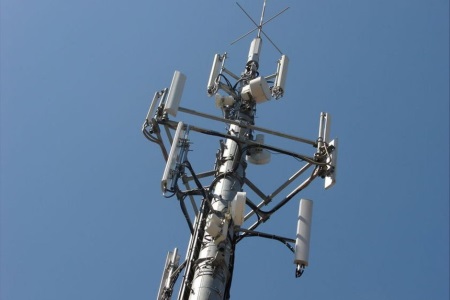Shanghai, China, May 13, 2013 – GreenTouch, the global consortium dedicated to dramatically improving the energy efficiency of data and communications networks, today shared the findings of new research that shows the net energy consumption in overall networks can be reduced up to 90 percent by 2020. The announcement comes via a live webcast taking place today at 8pm CST/1pm UK/8am ET. Industry members, along with the general public, are invited to watch the announcement at http://www.media-server.com/m/p/jcczhxay. A video on GreenTouch’s progress can also be viewed here: http://www.youtube.com/user/GreenTouchConsortium.

The first-of-its kind study applied advanced modeling to better understand potential network operations in 2020, taking into account dramatic increases anticipated in communications traffic over the next decade. The research evaluated energy efficiencies in different types of networks, comparing those in 2010 with those incorporating the technologies and architectures the consortium has identified that could be in use by 2020. The findings will be made available to service providers for identifying technologies, architectures and protocols to improve network energy efficiency.
Key findings include:
• Mobile networks stand to benefit the most from energy efficiency efforts, as they are the most inefficient and yet the fastest growing networks in terms of data volumes.
• Mobile networks could realize potential energy efficiency improvements of up to 1043 times.
• Energy efficiencies in fixed-line and core networks are also expected, but will be less dramatic. The modeling shows potential improvements in fixed access networks of 449 times and improvements in the core network of 95 times. Such networks are already relatively energy-efficient, so further gains will be less significant and much harder to achieve than with mobile networks.
“We are extremely proud of the progress we’ve made in our first three years, yet there is still much more we can do to improve efficiencies and effectively reinvent technologies in the name of environmental stewardship,” said Thierry Van Landegem, chairman, GreenTouch. “Reducing energy by 90 percent is conservative as we have many projects underway whose effects were not taken into account in that number.”
The study was conducted as part of GreenTouch’s Green Meter analysis, undertaken by the consortium to assess progress towards its goal. Models encompassed a combination of forecasting and trend projections, theoretical and analytical calculations, semi-analytical optimizations and network simulation, and focused on determining potential energy efficiency improvements as well as energy reductions. Energy efficiency is defined as the ratio of the useful traffic carried by a network and the total energy required to support that traffic over a year.
Some of the new technologies, architectures and protocols included in the 2020 modeling are small cells-deployment in dense urban environments, infrastructure-sharing across operators, discontinuous transmissions during periods without traffic, dynamic allocation of resources and the GreenTouch-developed Bit Interleaved Passive Optical Network (Bi-PON) protocol.
GreenTouch has also evolved into a unique model for industry and academic collaboration. “It would be difficult—if not downright impossible—for this type of industry research and technology development to have been conducted by any single vendor or research entity,” Van Landegem continued. “We are proving that industry collaboration among all the stakeholders of the ICT value chain can and should drive understanding and innovation.”
GreenTouch is comprised of a visionary group of 53 telecommunications vendors, service providers, universities and research organizations. The consortium was launched in 2010 with the ambitious goal of redesigning communications networks to dramatically improve their energy efficiency. With more than 16 projects underway, the consortium is two-thirds of the way into its five-year mission of developing technologies, such as the previously-demonstrated Large Scale Antenna System and Bi-PON, to support the growth of ICT networks and network traffic in an economically and environmentally sustainable way.
GreenTouch will continue its work on network architectures and technologies to further the consortium’s progress and issue reports through 2015, with the next update expected later this year.
About GreenTouch
GreenTouch is a consortium of leading Information and Communications Technology (ICT) industry, academic and non-governmental research experts dedicated to fundamentally transforming communications and data networks, including the Internet, and significantly reducing the carbon footprint of ICT devices, platforms and networks. More information can be found at www.greentouch.org and to stay updated follow GreenTouch on Twitter at @Green_Touch.
Advertisement
Learn more about Electronic Products Magazine





